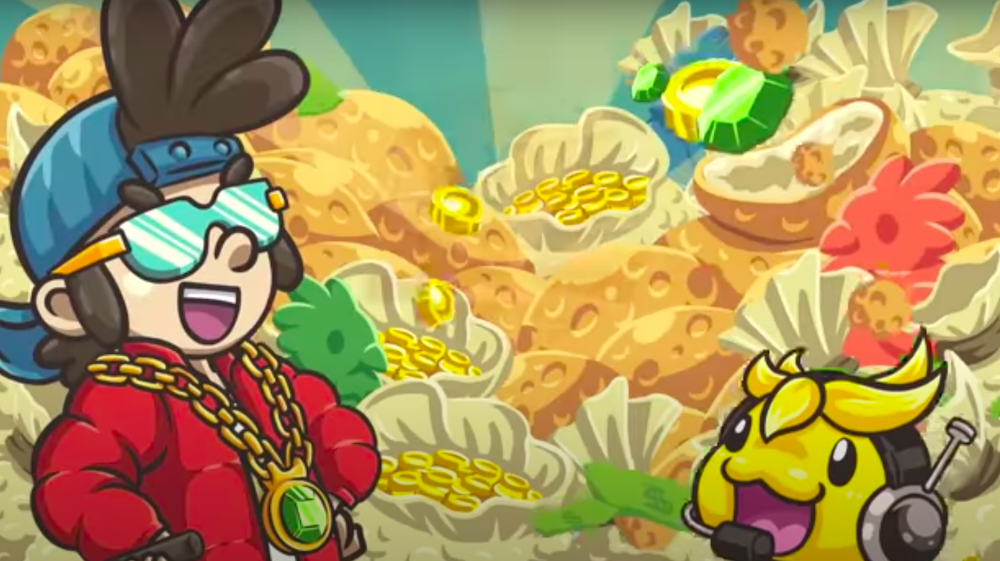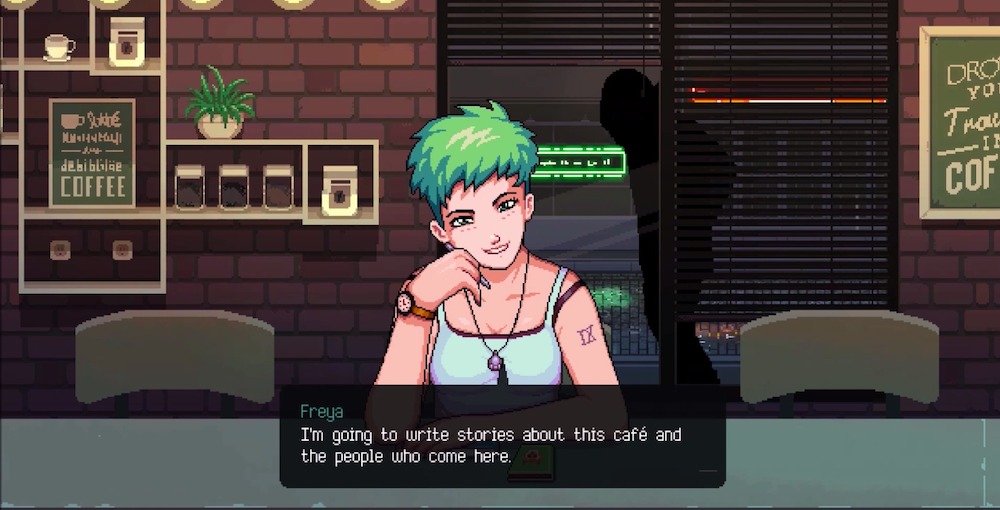Eldwin Viriya is an Indonesian game developer and entrepreneur. He started making games in 2011, shortly after he completed his degree in computer science. Viriya’s first products were browser and mobile games which were sold through the Nokia Store.
Due to promising sales from the Nokia Store, Viriya established his own company, Own Games, in 2013. At that time, the Nokia Store was the most popular platform among local game developers and publishers to sell their games, given the high number of Nokia users in Indonesia, Viriya explained.
However, Nokia was acquired by Microsoft in 2014, and among the changes enacted by the US firm, the Nokia Store was closed in November, affecting many Indonesian game studios, including Viriya’s business.
“The majority of our revenue came from Nokia Store in-app purchases, so when it closed down, our revenue dropped drastically to zero. We had six team members back then, but we had to let them go,” he told KrASIA.
Own Studio slowly recovered in 2016 after it published a game called Tahu Bulat that went viral. The game was inspired by the local snack Tahu Bulat, a type of fried tofu balls that is popular in the West Java city of Bandung due to its unique selling point: the snack is usually sold in a pickup truck, from where sellers attract buyers by singing a catchy rhyming song.
Viriya’s game helped to popularize the snack even more, while it also received an award from the International Mobile Gaming Awards (IMGA) Southeast Asia 2016, under the category “guilty pleasure.”
“Our approach is to make casual and hyper-casual games with unique and very local themes. We first released Tahu Bulat at a Comic Exhibition in Bandung, which attracted a lot of attention from visitors, so we took advantage of the existing momentum,” Viriya said.
Since 2013, Own Games has developed more than one hundred games, the most recent is Pocong Buster King that aims for international audience. However, Tahu Bulat remains the best-selling game to date.
Mobile gaming is king
With its huge young population and growing middle class, Indonesia is one of the largest gaming markets in Asia. According to Newzoo, Indonesia’s game revenue in 2018 reached USD 1.1 billion from three types of games: mobile, console, and PC.
Mobile dominates the Indonesian gaming market today. Market research platform Statista estimates that revenue from mobile games by the end of 2020 will reach USD 712 million in Indonesia, while mobile games will be played by around 50.8 million people.
However, according to data from the IP development association Cipta Kreasi (Cakra), the local game industry only controls less than 1% of the Indonesian market, while the rest is dominated by foreign games, as local gaming studios are having difficulty competing with global developers flooding the market with free-to-play games. These games are usually produced by large companies as they require more complex development and higher production costs.

“The mobile game industry is very crowded as there are hundreds of new titles being released every day. Free mobile games require a much higher budget than premium games. Therefore, many local studios move to premium console and PC games, as they usually consist of small teams and have limited budgets making them more suitable for paid games,” freelance game designer Fahmi Hasni explained.
To win the market, free to play games generally need stronger research. In addition, the game requires costs such as server maintenance and security so you don’t get hacked. Marketing costs are also greater and the new content needs to be added regularly to effectively retain users.
“In addition, monetization of premium games is much easier, from sales. Free games are more complicated as even though there are several monetization options, they need to be handled carefully. For instance, if a game uses in-app purchases, developers need to ensure that the items are not too expensive and suitable for their target market. For advertising monetization, they have to make sure that the ads are not too intrusive and annoy the players,” Hasni explained.
The Indonesian Game Association also explained that given the situation, local developers are predilecting the global market, as they are willing to pay for premium games while Indonesian gamers prefer free games.
A number of Indonesian games have managed to gain popularity overseas such as Dread Out, Fallen Legion, as well as Coffee Talk, which was designed by Hasni during his stint at local independent game developer Toge Production. However, Viriya and Hasni said many still fail to compete in the global market due to tight competition.
The challenges
One of the biggest challenges affecting the local industry’s growth is the lack of investment, which is caused by a lack of basic knowledge from investors about the local gaming sector.
“From 2013 to 2015, the Indonesian gaming market started to take off and there were several venture capital (VC) firms making investments in gaming startups. The problem is, many of them didn’t really understand how the industry works. They wanted studios to make games similar to popular titles like Angry Birds, Clash of Clans, and so forth,” said Hasni.
He explained that the investment method for gaming studios should not be equated with funding at other digital startups. “Investor should invest in a project, instead of in the company. Games for console and PC usually take longer to develop [than mobile games]. One major game could take up to two years to complete. By investing in a project, investors cannot push developers to make other games that they think will sell,” Hasni continued.
In addition, Hasni argued that the government should provide more support for the development of the indie gaming market. “The bureaucracy in Indonesia is tricky, and it could restrict our movement. Platforms like Reddit and Vimeo are still blocked here, which limits our reach to promote the games.”
Moreover, the government and industry players need to improve cooperation in combatting the rampant piracy that rips off Indonesian game developers. “Many Indonesians think digital products should be free. Although affordable, my game, Coffee Talk, is still being sold illegally on marketplace platforms, which is very detrimental for developers,” Hasni added.

Hope for hyper-casual games
The COVID-19 pandemic has caused more people around the world to spend more time than ever playing games, with a particular genre seeing significant growth this year: hyper-casual games. According to a report by marketing analytic firm Adjust, installs for hyper-casual games more than doubled from December 2019 to March 2020 compared to the same period a year before, while hyper-casual gaming sessions increased by 72% in March compared to December 2019.
Hyper-casual games don’t require much skill and can be played by everyone, and usually have small sizes which make them versatile enough for most types of smartphones.
According to a report titled Southeast Asia Gaming Market Forecasts 2020-2025, by Research and Markets, the number of mobile players in the region will rise to 250 million next year, and hyper-casual games are a major growth driver.
Still, among the top twelve hyper-casual games publishers, only one comes from Southeast Asia: Vietnam-based Amanotes, which produced hit games Magic Tiles and Hop Ball which have been downloaded more than 700 million times by users across the world. Another game that has achieved success in the global market is Flappy Bird, which was developed by another Vietnamese developer named Dong Nguyen.
“Vietnamese [developers] have always been known for their great talent and courage in taking risks. They invest a massive marketing budget in order to target the western market, especially Europe and the US. Meanwhile, most Indonesian studios lack funding,” Viriya continued.
Since most Indonesian studios can’t afford an expensive marketing budget, many of them work with foreign publishers. One example is a game called Happy Glass, created by Indonesian developer Mobile 5 Game but published by American publisher Lion Studio. Happy Glass is performing well internationally with the support of Lion.
The revenue-sharing model is agreed to by both parties, but the most common model is 50:50 or 70:30, depending on the workload of each party, according to Fahmi Hasni.
In addition, Asia’s major telco Singtel, SK Telecom, and AIS, recently launched a gaming company called Storms. One of Storms’ business units is game publishing, focusing on hyper-casual games, where it works with local boutique studios in Indonesia and Southeast Asia.
“A lot of Indonesian game studios are facing issues right now. First, they don’t have enough money for marketing to acquire users as most of their budget goes to game development and staff salary. Second, they don’t really understand global markets very well,” said David Yin, CEO of gaming startup Storms and former head of business development for Google Play SEA and ANZ.
He added that Storms has the ability to advise local studios whether they want to go very local or focus on global markets.
Watch this: Is Sea Group Southeast Asia’s answer to Tencent and Alibaba?
What’s next?
Despite facing a number of challenges, industry players are optimistic that the development of the local game industry will accelerate compared to the previous ten years. A number of major corporations have also stepped up to develop the local industry, including Telkom, which began to incubate game developers through a program called Indigo launched last year.
“Indonesian game developers have amazing talents, but many of them don’t have great business skills to market and sell their games, so more programs like Indigo are needed,” said Hasni.
Going forward, industry players hope the Indonesian government can further support the development of the gaming industry, including building a formal curriculum by adding game development majors in universities to cultivate local talent.
He also believes that local games can compete with titles from global developers, especially for premium PC and console games as there are examples of Indonesian games that are reaping success in Indonesia and overseas. “This type of game usually has loyal fans. Mobile and casual games also have a chance to succeed, but it depends on the right timing.”
Meanwhile, after seeing a lot of interest from foreign publishers, Storms’ Yin believes that hyper-casual games will continue to grow in Indonesia in the next few years and attract more collaboration.
“With more strategic partnerships, Indonesian developers have the opportunity to market their content to regional and global markets,” he said.


